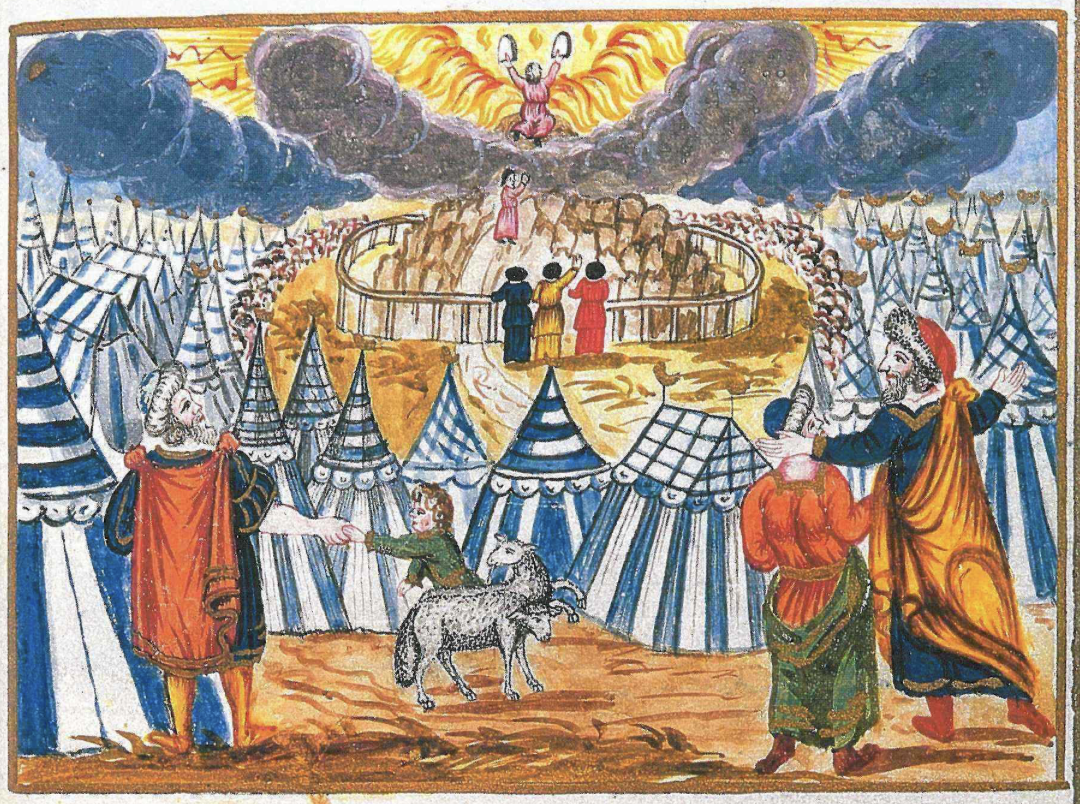Torah Study Date
Saturday, June 15, 2024
Verses Covered
Exodus (Sh’mot) 23:18-23:23
Next Session
Saturday, June 22, 2024
Starting at Exodus 23:24
Last week we discussed YHVH’s prohibition on offering the blood of my sacrifice on leavened bread and the prohibition on letting the fat of YHVH’s festival remain until morning.
Commentators assume the first of the prohibitions refers to the Passover festival (or, as it is called so far, the Festival of Unleavened Bread) but R. Ben wondered if there is good reason to assume that or whether it could be any festival. We also wondered why sacrificial blood on leavened bread is prohibited. We thought a reason for not letting fat remain until morning is that it would smell.
We thought bringing first fruits of the land to YHVH’s house is reminiscent of previous requirements to give up firsts whether they be agricultural firsts or familial firsts, that is, the firstborn son.
We discussed the prohibition of eating a kid in its mother’s milk and noted that the rabbis, later, would turn this into the requirement of separating meat meals from milk meals and meat from milk. We discussed two possible reasons for not eating a kid in its mother’s milk, one involving rejection of an Ugaritic or Canaanite practice and the other involving humanitarian concerns. The Canaanite practice is not well-attested, however, but is conjectural. That there are humanitarian or moral concerns in Torah is evidenced in later passages that include the prohibition of sacrificing an ox or sheep on the same day as its offspring or taking a mother bird along with her eggs.
We then discussed YHVH sending an angel ahead of the people to guard them and bring them to the place YHVH has prepared. Malach can be translated as angel or as messenger. We discussed the dangers of travel in a new place, especially without tour guides, Airbnb ratings, police, etc. A malach would allay some of the Israelites’ fears. We discussed the exhortation to listen to the angel/messenger’s voice and not rebel against the angel/messenger because, since YHVH’s name is in the angel, the angel would not forgive such an offense. R. Ben pointed out that the word translated as “offense,” pesha, is used in treaties. We discussed Friedman’s idea that an angel is a hypostatization (that is, concretization) of God. Maybe that is what YHVH’s name being in the angel means. R. Ben suggested the angel is like a golem.
We discussed YHVH’s more positive statement that if the people listen to my voice and do everything I speak, I will be an enemy to your enemies and an opponent to your opponents. We noted again the presence of treaty language (if you do this, I will do that; or, as R. Ben said, mess with my God, mess with me). We then lamented the next statement about annihilating several tribes. We did not think of anything that would bring our lamenting to an end.
Our artwork this week is The Revelation at Mt. Sinai (Moravian Haggadah, 1737) (above) and Tablets of the Law (Sloane Manuscript 1373 Haggadah) (below). In the revelation painting, there are blue and white tents; Moses, with two tablets, in the concentric circle clouds around the mountain; three people watching at the boundary of the mountain; a circle of many more people at a further remove from the mountain; and some playful people even further away—beyond the tents—including a child with lambs. In the painting of the tablets, God’s hand holds the tablets from above in the clouds. Though from different sources, I think these two paintings go well together.


